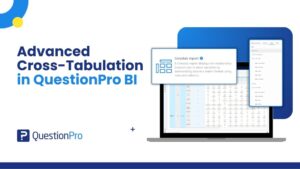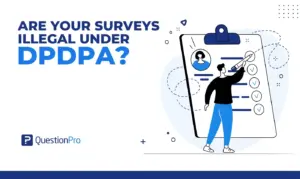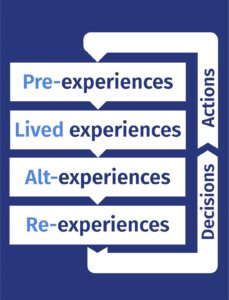
What is a structured interview?
A structured interview is a way of evaluating candidates for jobs while following a standard format. All candidates are interviewed in the same format with the same set of questions and rating scales. Thus, a standard process is followed while selecting a candidate. The interviewer prepares a list of questions based on the skills required for the job.
Depending on the number of positions to be filled, there can be many interviewers asking the same set of questions to all candidates.
When there are many job vacancies, it is appropriate to go for structured interviews. Following a different pattern for each candidate is not feasible when there are many positions to be filled.
Structured interview example
Assume 150 candidates have applied for ten openings of a software programmer with an e-commerce company. They will be asked data structure interview questions. The top 25 candidates with the highest scores will move to a round of HR interview consisting of behavioral questions.
Structured interview questions
Generally, structured interviews consist of questions on job skills, behavioral questions, and situational interview questions. Good interview questions explore the strong and weak areas of a candidate. It helps the interviewer to analyze the potential of a job applicant.
Some of the commonly asked structured interview questions are below that can serve as an interview guide:
- Tell me about yourself.
- Talk about achievements you are proud of.
- What is that one challenge that is difficult for you to overcome?
- Give me an example of a situation when you had to take a risk.
- What do you like most about your current job?
- What do you hate most about your current role?
- Give us an example of your work that got you a lot of appreciation.
- Give an example of a situation when there was a conflict within the team. How did you handle it?
Post interview, you can conduct a survey to gather the feedback of candidates on the recruitment process. You can either write questions or use a recruitment satisfaction survey template.
Why to conduct structured interviews?
Structured interviews are considered to be more effective when it comes to hiring the right candidate, among many. It does take time to prepare the questions, but once it is done, it is quite easy and smooth to conduct a structured interview.
Below are some of the benefits of conducting structured interviews.
- Process-oriented interview – Structured interviews stick to a set of processes and hardly deviate from it. For instance, a candidate has to go through a few rounds of interviews and document verification before being selected. This complete process can be through human interviewers or automated through software. Hence there are fewer chances of error and bias towards candidates.
- Reusable questionnaire – Subject matter experts and HR managers create a list of questions that remain common for all candidates. They can be reused for future hiring activities too.
- Suitable for mass hiring – Structured interview questions are ideal for big organizations hiring many people in one go. They are also appropriate for companies that hire people at regular intervals throughout the year.
- Saves time – As the interviewer does not have to spend time to prepare questions for each candidate, it saves considerable time. The HR manager and management team do not have to spend time on making decisions for individual candidates. For instance, many companies take online tests or an interview method with a bot to screen candidates. Based on the scores, eligible candidates move to the next round of structured interviews.
- Easy to analyze data – The format and scoring mechanism of the structured interview questions remain standard for all the candidates. Hence it is easy to compare the data of job applicants based on various data filters. You can generate reports, export them, and identify trends to make better decisions.
While there are several benefits of a structured interview, an unstructured interview has its importance. But before delving into whether you should conduct a structured interview or an unstructured interview, let’s understand what it means.
What is an unstructured interview?
An unstructured interview does not follow any standard pattern of questions. It is subjective, and the interviewer asks questions based on the candidate’s skills and job requirements.
An organization tries to find out if the candidate will be an excellent cultural fit using unstructured interview questions. As the list of questions varies from candidate to candidate, unstructured interviews do not follow any standard process and are unique for each candidate.
Unstructured interview questions do not have a standard scoring system. The candidates are selected based on how well they answer the questions and get along well with the interviewer during the interview.
Unstructured interviews carry a risk of bias creeping in. The interviewer may judge the candidate based on age, gender, race, or religion.
However, unstructured interviews are useful when it comes to knowing a candidate closely. It is easy for the interviewer to observe how candidates react to the changing flow of questions.
As the complete flow of questions is dynamic, the interviewer can try to make candidates a bit more comfortable, as well as know if the candidate can handle stress.
Unstructured interview example
Assume ten candidates have applied for one opening of a research analyst with a market research company. They will be asked job-specific questions in random order. The difficulty and subject of questions will change depending on the depth of knowledge of the candidate.
Unstructured interview questions
Unstructured interview questions often measure the soft skills of a candidate and the likelihood of a candidate being successful in an agile environment. Some of the unstructured interview questions are:
- What was the team size in your last project? What was your role?
- Tell us about one mistake you made. How would you do it differently now?
- How would you deal with a boss whose personal views are different from you?
- Would you be able to work with people who are quite different from you?
- Would you like to take a leadership role in the future?
- Tell me about a situation you found very stressful. How did you cope with it?
- What kind of leadership style do you like? Why?
Why conduct unstructured interviews?
Unstructured interviews are an ideal choice when the number of candidates is low. At times, processes become overhead when they don’t apply to too many people. In such situations, it is better to not follow any strict format. Also, if the interview panel has sufficient time to ask any questions randomly, they should conduct an unstructured interview.
In uncertain times, businesses often come across challenging and stressful situations. Unstructured interviews can help you know how candidates deal with such situations.
Structured vs. Unstructured interviews
Structured and unstructured interviews differ from each other based on the below points.
1. Process
Structured interviews are more process-oriented, and so follow a standard set of rules such as time limit, scoring system, and order of questions. Unstructured interviews, on the other hand, do not follow rules that apply to all job applicants. It is up to the discretion of the interviewer.
2. Measure soft skills
You can gauge soft skills through an unstructured in-person interview. This is not always possible with structured interviews. Though with technologies like artificial intelligence and natural language processing, chatbots can analyze candidates’ responses. With unstructured in-person interviews, you can view someone’s body language, expressions, emotions, and more.
3. Approach
Unstructured interviews are casual in approach. The interviewers often rely on their knowledge, skills, and experience to ask questions. Many times, they interview candidates with questions created on the fly. Structured interviews are more methodical in approach, and the questionnaire is prepared in advance.
4. Order
Structured interviews follow a specific order, and the interviewer doesn’t deviate from the sequence of questions. Unstructured interviews do not follow any such order.
5. Rating scale
Structured interviews have a standard scoring system for each question. If the candidate clears the cut-off, then only he/she can proceed to the next round. Or sometimes, the top 1% are selected for the next round. In any case, an interviewer cannot manipulate the selection model. Whereas in unstructured interviews, there is no specific scoring system.
Having looked at the benefits of both structured and unstructured interviews, one might feel confused as to what should they go for?
Both structured and unstructured interviews have their use-cases. You can decide the best choice based on your requirements.
You can also go for a hybrid approach known as semi-structured interviews.
LEARN ABOUT: Structured Question & Structured Questionnaire
What is a semi-structured interview?
A semi-structured interview asks a few questions in a pre-fixed order, while others are asked in random order. This type of interview consists of both role-specific and general interview questions.
The interviewer will ask more open-ended questions allowing room for discussion. In some cases, the interviewer prepares a list of questions but doesn’t ask all of them, or just prepare a list of topics.
At times, the interviewer starts with questions in a fixed order but then decides to ask questions based on the answers of the interviewees.
Semi-structured interviews have the best of the worlds. They let you save some interview time and, at the same time, allow you to know the candidate’s behavioral tendencies and communication skills.
Semi-structured interview example
Consider a company hiring a senior data scientist. The interview may start with a list of problem statements to solve within a stipulated time. But, if interviewers find that the questionnaire is too easy for the candidates, then they might raise the difficulty level of the questions on the go. Or they may ask questions related to team and project management. Or it can be vice versa too, first open-ended discussion and then the standard list of problems to solve.
Semi-structured interview questions
The interviewers generally start with ice-breaker questions to know more about the qualifications of the candidates. Depending on the answers, the interviewer may ask further questions to learn more. Some of the semi-structured interview questions are as below:
- What’s your typical week like?
- What was your role in the project?
- How does your solution impact business?
- What tools have you used in your previous project?
- What do you think will be the next stage in your career?
While we have highlighted the differences between structured and unstructured interviews, if you are still in a dilemma, you can go for semi-structured interviews.







